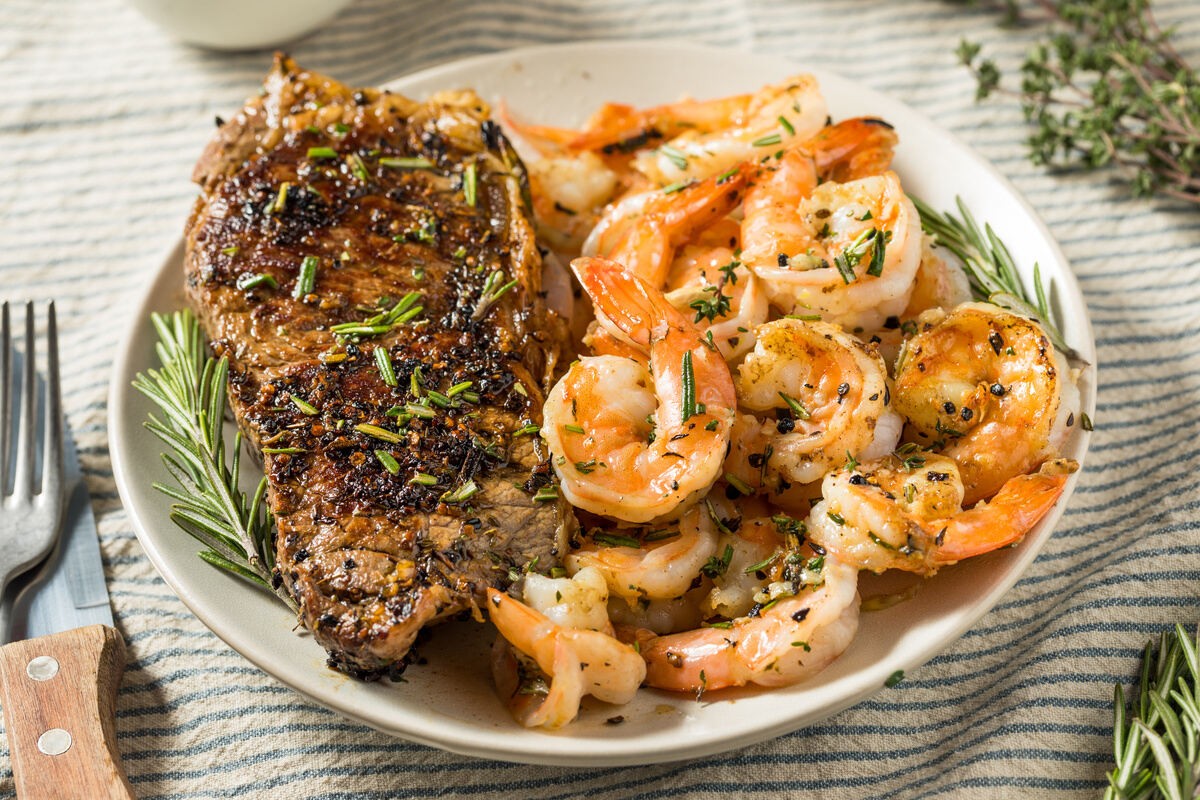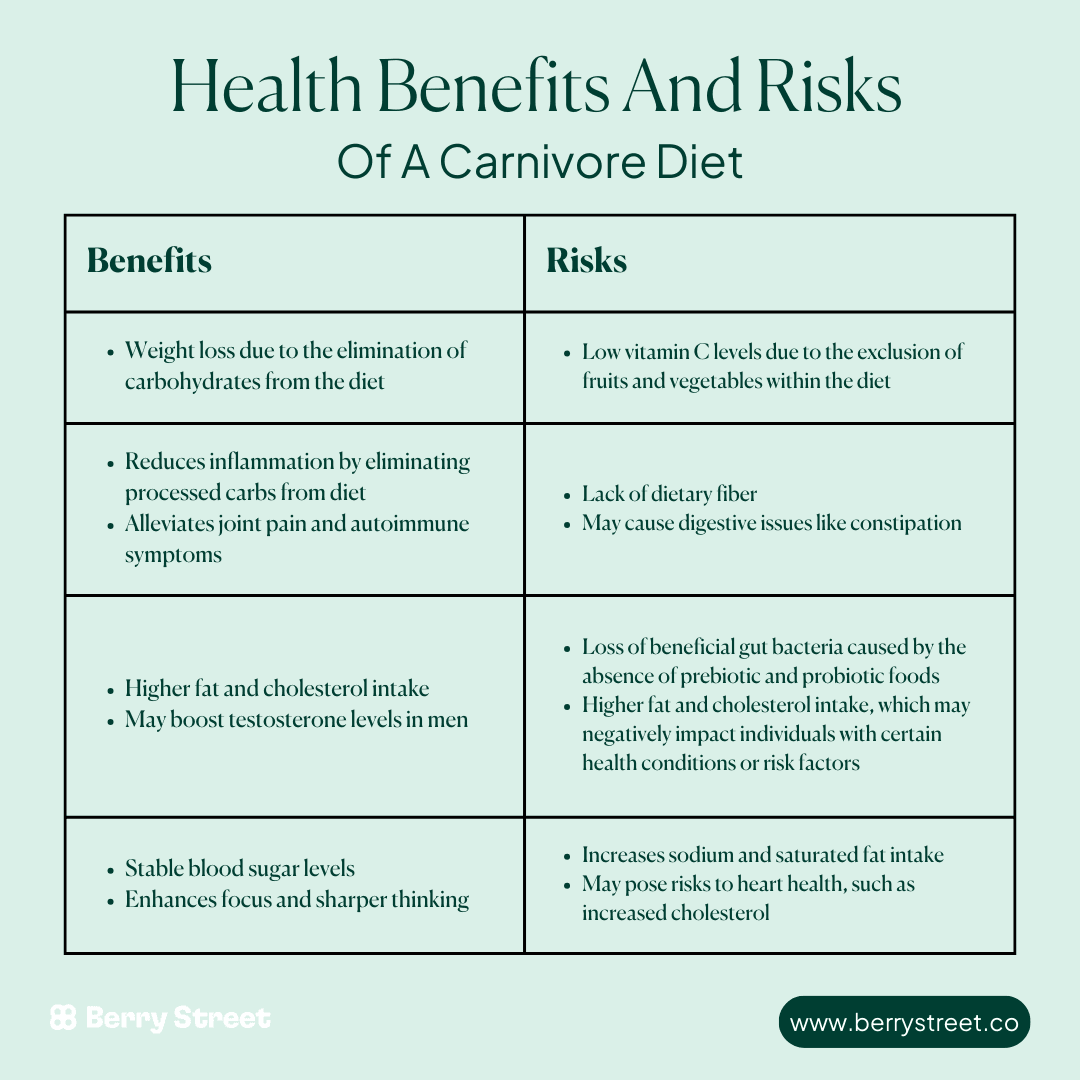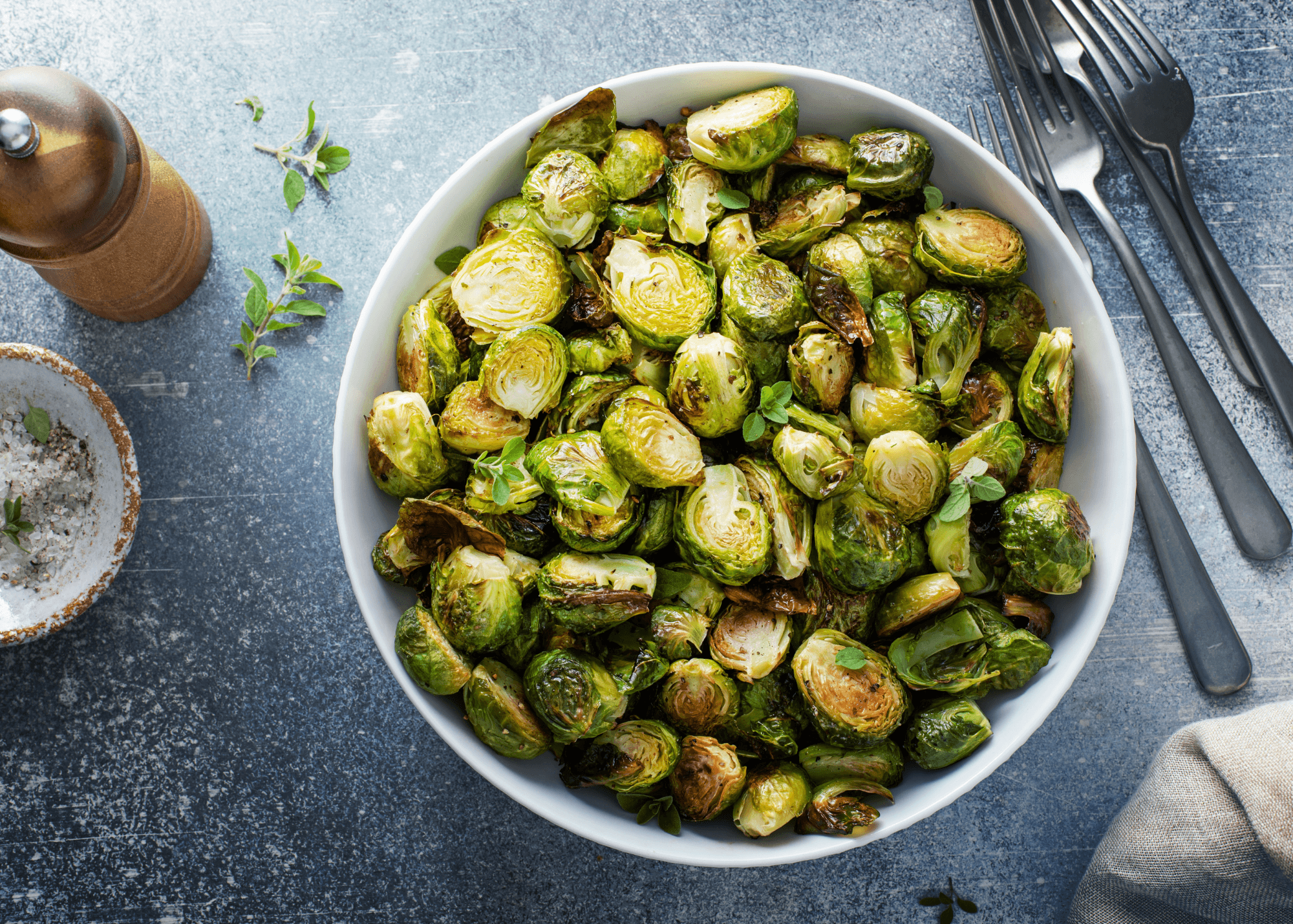The carnivore diet meal plan is gaining popularity as a unique approach to health and wellness.
This restrictive diet focuses solely on animal-based foods like meat, fish, eggs, and certain dairy products, eliminating vegetables, fruits, grains, and legumes.
Often referred to as a “zero carb” diet, a carnivore diet emphasizes simplicity while promising potential benefits for weight loss, mental clarity, and reduced inflammation. Proponents of the diet advocate for its support of many health conditions and concerns, but not all experts agree.
Jessica M. Kelly, RDN, LDN, explains, "The carnivore diet may provide short-term results for some individuals, but it eliminates many nutrient-dense foods essential for long-term health. A balanced, varied diet is key to supporting your body’s overall wellness and nutritional needs."
In this comprehensive guide, we’ll explore carnivore diet meal ideas, discuss its benefits and risks, and guide you on how to get started.
Carnivore Diet Meal Ideas For Breakfast, Lunch, And Dinner
Creating a carnivore diet meal plan requires careful planning to maintain variety and nutritional balance.
Here’s how you can structure your meals for the day:
Breakfast: Yogurt And Hard-Boiled Eggs
Start your morning with a nourishing combination of full-fat, unsweetened yogurt and hard-boiled eggs.
Ingredients:
1 pot with a lid
2 eggs
2 cups water
1 cup unsweetened Greek yogurt
Start by placing the eggs in a single layer in a pot, covering them with cold water about an inch above the eggs. Bring the eggs to a rolling boil over high heat after about 10-12 minutes.
Drain, then cool the eggs immediately under cold water to prevent overcooking and discoloration. Once they’re fully cooled, peel the eggs and serve with a side of Greek yogurt.
Rich in protein and healthy fats, this breakfast supports muscle health, satiety, and balanced energy levels throughout the morning. Plus, it’s incredibly easy to make hard-boiled eggs first thing in the morning to start your day right.
Looking for personalized meal ideas? Let a ‘Registered Dietitian near me’ at Berry Street help you craft the perfect carnivore-friendly menu.

Lunch: Bone Broth And Turkey Burger
For lunch, try a hearty bowl of homemade bone broth paired with a juicy turkey burger.
Ingredients:
Bone Broth:
10 lbs beef bones
2 large chopped carrots
2 medium quartered onions
2 heads halved garlic
2 stalks chopped celery
bay leaves
¼ cup black peppercorns
4 whole star anise
2 whole cinnamon sticks
2 tbsp apple cider vinegar
Turkey Burger:
1 non-stick skillet
1 silicone spatula
1 bottle olive oil
1 lb lean ground turkey
1 tbsp mayonnaise
1 tbsp Dijon mustard
1 tsp Worcestershire sauce
3 cloves minced garlic
1 tsp kosher salt
½ tsp freshly ground black pepper
2 tbsp extra virgin olive oil
Optional Items For Serving:
2 cheddar cheese slices
1 sliced tomato
1 sliced onion
1 caramelized onion
2 pickles
2 lettuce pieces
ketchup, mustard or mayonnaise
Blanch the beef bones in a large stockpot, then roast them alongside the carrots, onions, garlic, and celery in the oven at 450°F for 45-60 minutes. Once roasted, transfer the bones and vegetables to a pot, simmering with spices and vinegar for 24 hours, then strain and cool the broth.
For the turkey burgers, mix the ground turkey with seasonings. Form them into patties, and cook in a skillet until they become golden brown.
Lastly, serve the hearty broth with the juicy turkey burger for a flavorful, nutrient-packed meal, and refrigerate or freeze any leftover broth for future meals.
Bone broth is rich in unprocessed collagen and amino acids, while the turkey provides a lean protein source. As such, they’re pivotal for supporting joint health, muscle recovery, and sustained energy throughout the day.

Dinner: Bison Steak With Sauteed Shrimp
Enjoy this elegant and protein-rich dish, combining tender bison steak with buttery sautéed shrimp, perfect for a satisfying and nutrient-packed dinner.
Ingredients:
Steaks:
2 1-inch thick Bison Steaks (Ribeye or sirloin)
sea salt and pepper as desired
2 tbsp avocado oil
3 tbsp butter
5 cloves lightly smashed garlic
3 sprigs fresh rosemary
Shrimp:
8 oz peeled and deveined shrimp
salt and pepper
bottle olive oil
2 tbsp cold butter
2 cloves garlic
Garlic Butter:
4 tbsp softened butter
1 tbsp pressed or minced garlic
2 tsp chopped thyme, rosemary or tarragon
1 tbsp chopped flat leaf parsley
pinch of maldon sea salt
pinch of coarse black pepper
Prepare the garlic butter by mixing the butter, garlic, parsley, and thyme together in a bowl, then seasoning with salt and pepper. Refrigerate the garlic butter until it’s needed.
Generously season your bison steak with salt and pepper, letting it rest for an hour at room temperature. Sear the steak in hot oil for 2-4 minutes per side in a skillet, basting with garlic butter and herbs, then rest the steak afterwards for 8-10 minutes.
Cook the shrimp in the same skillet as the steak with butter until they’re pink and curled, then remove from heat. Plate the steak and shrimp and serve them topped with the garlic butter.
Bison is a leaner, nutrient-dense alternative to beef. It’s also loaded with omega-3 fats while the shrimp adds a flavorful, lean protein to the mix. Overall, this dish supports your muscle health, energy, and overall vitality.
A certified sports dietitian can integrate this flavorful recipe into a personalized meal plan tailored to your fitness and nutritional goals.

What Is The Carnivore Diet?
The carnivore diet centers on eliminating all plant-based foods and consuming only animal-derived products. It’s considered a high-protein and lower carbohydrate diet, ideal for those wanting to minimize carbohydrates in their diet.
Our research indicates that maintaining the carnivore diet requires expert guidance to avoid potential nutrition deficiencies.
Ready to start your journey? Connect with one of our expert Registered Dietitians at Berry Street today and craft your personalized diet plan!
Health Benefits And Risks Of A Carnivore Diet
Some research suggests that the carnivore diet is linked to several health benefits, but this diet equally comes with risks.
Let’s take a closer look at the various benefits and risks associated with a carnivorous diet.
Health Benefits And Risks Of A Carnivore Diet
Some research suggests that the carnivore diet is linked to several health benefits, but this diet equally comes with risks.
Let’s take a closer look at the various benefits and risks associated with a carnivorous diet.

Carnivore Diet Benefits
Weight Loss And Energy Stability
A carnivore diet often promotes weight loss by eliminating high-carbohydrate foods and transitioning the body into ketosis, where fat becomes the primary energy source.
Through our practical knowledge, we found that this metabolic shift enhances fat burning while the high-protein, high-fat content increases satiety, reducing overall calorie intake.
When followed and implemented correctly by a weight loss dietitian, a carnivore diet may support stabilized blood sugar and energy levels, which can minimize energy crashes and prevent overeating.
Reduced Inflammation And Joint Health
Our findings show that eliminating processed sugars and refined carbohydrates may significantly reduce chronic inflammation.
Moreover, omega-3 fatty acids (like in fatty fish) can further support joint health by reducing inflammatory markers.
Improved Hormonal Health in Men
According to the National Institutes of Health, the high cholesterol and fat intake inherent in a carnivore diet supports testosterone production, enhancing energy, strength, and overall vitality for men.
As such, elevated testosterone levels can improve mood, muscle development, and physical performance.
With the aid of GLP-1 therapy and a sports dietitian, men can incorporate nutrition and exercise to manage their weight and optimize their health.
Mental Clarity And Focus
The absence of high-carbohydrate blood sugar fluctuations can prevent brain fog and energy dips. Instead, a steady supply of fat and protein sources supports consistent mental energy.
Ready to learn more about the carnivore diet? Let Berry Street connect you with a licensed dietitian covered by insurance for a personalized plan.

Carnivore Diet Risks
While the carnivore diet may provide benefits, the carnivore diet isn’t without risks.
Here are some challenges you might face:
Vitamin C Deficiency
Without fruits and vegetables, people on a carnivore diet risk vitamin C deficiency, which can lead to fatigue, gum bleeding, or scurvy in extreme cases.
It’s recommended to incorporate organ meats like liver or kidney to give you a valuable source of vitamin C to meet your daily requirements.
Digestive Health Challenges
Our investigation demonstrated that the absence of dietary fiber, essential for gut health, may cause constipation, bloating, or an increased risk of diverticulitis, a type of inflammation that occurs in the large intestine.
In this instance, a gut health dietitian can recommend supplements like bone broth, collagen, or gelatin to offer partial relief. While these supplements may support gut lining integrity and stool consistency, keep in mind that they aren’t full substitutes for fiber.
Gut Microbiome Imbalance
Prebiotic fibers from fruits and grains, which nourish beneficial gut bacteria, are missing in a carnivore diet. This can reduce gut microbiota diversity, impairing digestive and immune functions.
The National Institutes of Health asserts that a disrupted gut microbiome can lead to an overgrowth of harmful bacteria and reduced production of short-chain fatty acids (SCFAs), which are crucial for colon health.
Probiotics or fermented animal products such as yogurt can help maintain some balance but cannot fully replace prebiotic sources typically found in fruits and vegetables.
A gut health dietitian from our team can recommend certain fruits, vegetables, whole grains and products which are essential for feeding the beneficial bacteria in the gut and can be partially incorporated into a carnivore diet when necessary.

Heart Health Concerns
High sodium and saturated fat intake in the carnivore diet (instead look for low high-cholesterol diet plan) can elevate your cholesterol levels, thereby increasing cardiovascular risks such as hypertension and heart disease.
That’s why consulting a cardiovascular dietitian is essential for monitoring sodium and fat levels, ensuring a carnivore diet aligns with your long-term heart health goals while minimizing potential dangers.
Conclusion
In this article, we discovered that a carnivore diet meal plan focuses predominantly on animal-based foods while providing some recipes for breakfast, lunch and dinner as added inspiration.
While the carnivore diet plan offers some health benefits, it also presents significant risks which can be detrimental to your health.
At Berry Street, we’re here to help you navigate the complexities of this diet. Use our services to connect with Registered Dietitians who can tailor a plan just for you.
Your journey to better health starts today—reach out to us now!
If you want to learn more, why not check out these articles below:












